It continues to befuddle me how similar and different the China Chinese and any overseas Chinese are. Southeast Asian Chinese say “骑脚车Qí jiǎo chē” (literally “ride leg car”) when they ride a bicycle, but here it’s “骑自行车 Qí zìxíngchē” (literally ride self moving car). Southeast Asian and Taiwanese Chinese call pineapples “黄梨 / 凤梨 Huáng lí/ fènglí” whereas here, it’s “菠萝 Bōluó” (which always made me think of some sort of carrot “萝卜 Luóbo“). The list goes on and on, but it’s more than just the words that are different. When it comes to Chinese New Year, I’ve noticed a few of my hometown traditions which aren’t practiced here, but which are rather fun and involve the whole family and friends if you’re looking for a twist on your CNY celebration!
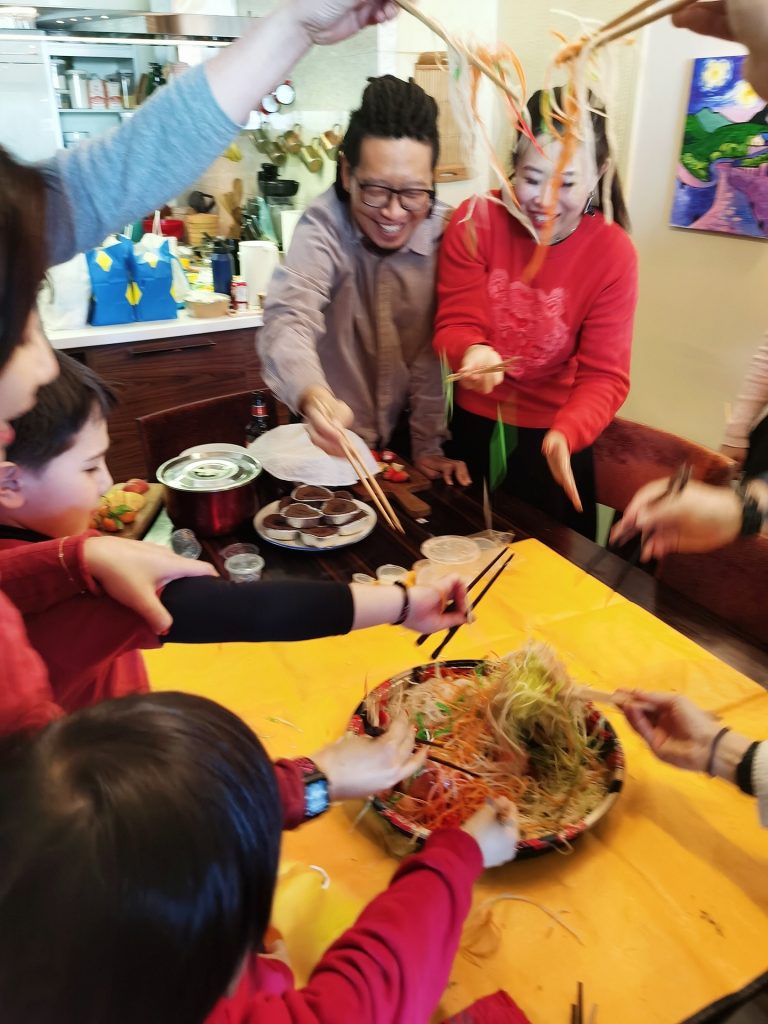
The first tradition is that of “lo hei” in a mandarin dialect or 鱼生 Yú shēng in Chinese. Yusheng is a customary Singaporean and Malaysian Lunar New Year dish, traditionally served on the 7th day of Chinese New Year, which known as 人日 Rén rì. Renri means “every man’s birthday” so everyone becomes a year older on this day. In the past, yusheng was only eaten on renri, however these days it is normal for a family to eat yusheng numerous times throughout the New Year period and it is usually served at the start of every meal. Watch the video below to see how you put yusheng together and why it’s so fun!
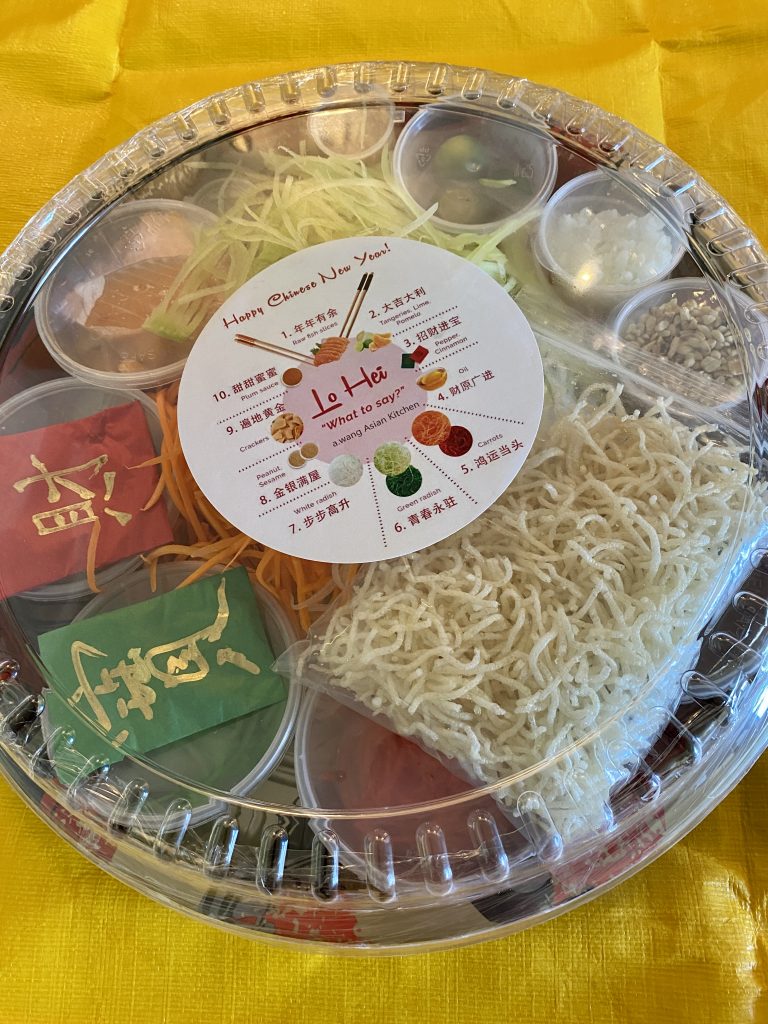
Comments from over the two years I’ve introduced yusheng to my friends include, “Wow this is exactly the opposite of what your mom says not to play with your food” and “It’s so delicious”. Plus, it’s almost vegetarian except for the salmon slices, so the kids will be eating plenty of nutritious stuff without knowing it.
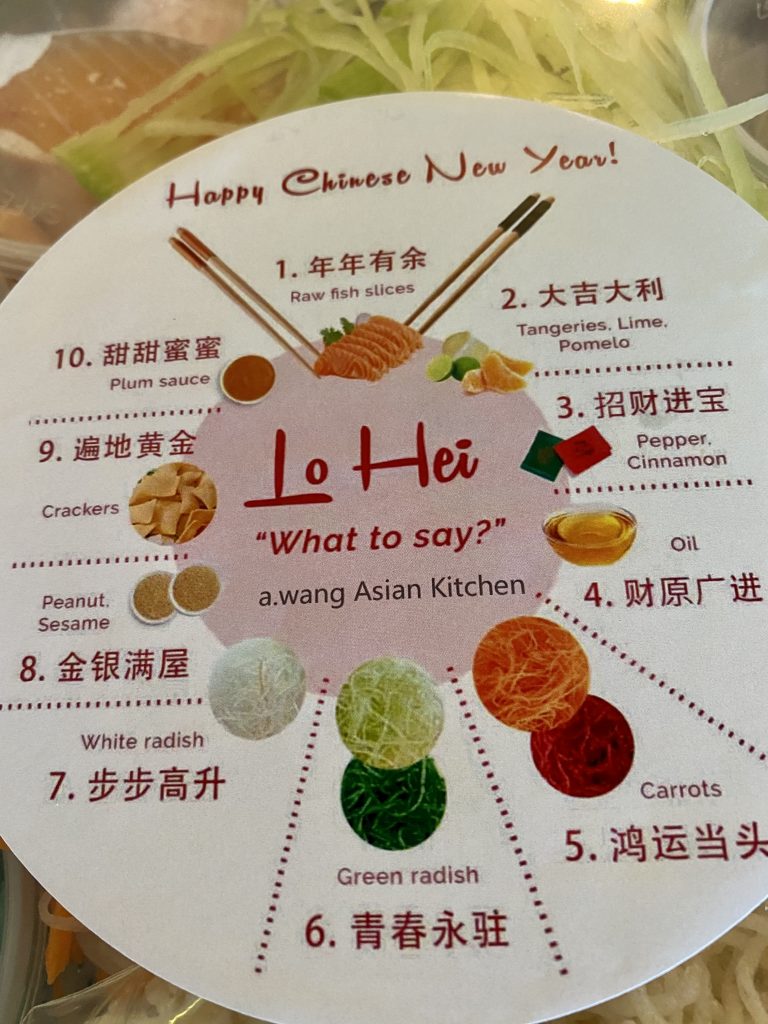
The second tradition is how we give a pair of mandarin oranges to a guest every time we’re visiting their home. We hold the oranges in our hands as we enter their domicile and greet them with well wishes such as the perfunctory “新年快乐 xīn nián kuài lè” or “恭喜发财 gōng xǐ fā cái“. The host will accept our oranges and well wishes, and offer us their own pair of oranges and well wishes in exchange! This whole process was what we call “bai nian” which is basically ” visiting during CNY”. To up your CNY game this year, here’s a list of better well wishes you can say to different people.
To anyone: “虎年大吉 hǔ nián dà jí” (Wishing you luck in the year of the Tiger!)
For older individuals: “虎虎生威 Hǔ hǔ shēng wēi” (Wishing you fullness of the vigor and vitality of the tiger)
For couples: “虎运连年 hǔ yùn lián nián” (Wishing you the luck of the Tiger year after year!)
For people focusing on their careers, or students with major exams: “龙腾虎跃 lóng téng hǔ yuè” (‘Dragon soaring and Tiger leaping’ (Wish you prosperous and thriving in new year)
For young kids: “如虎添翼 rú hǔ tiān yì” (Wishing you’re like a tiger with wings (i.e. doubly strong)
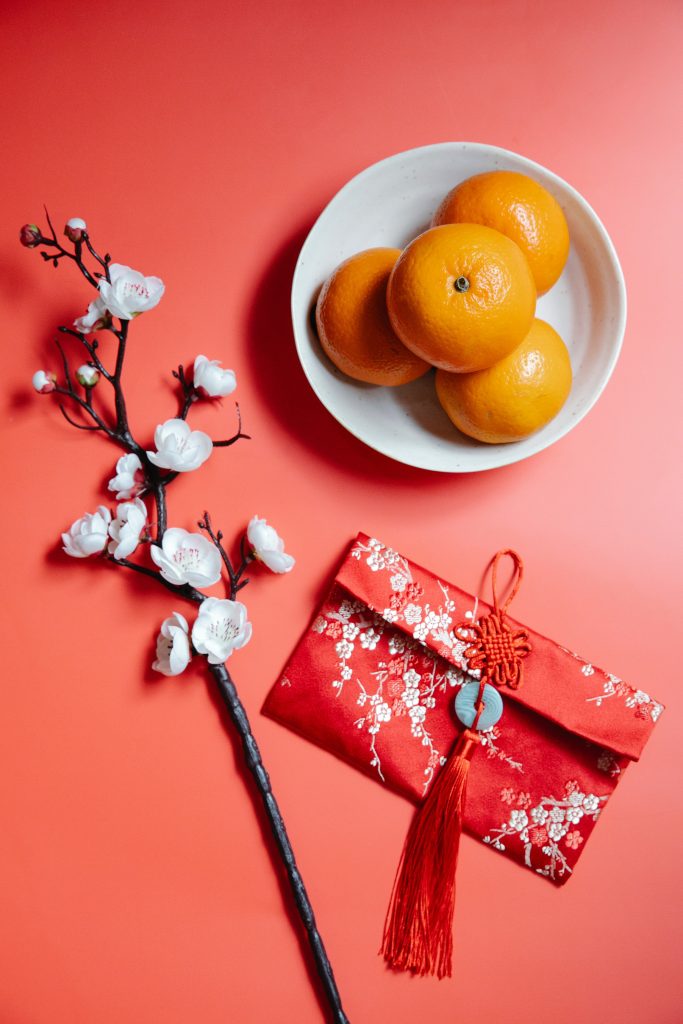
So if you’ve had it with dumplings this CNY, there’s still time for you to celebrate CNY with an overseas Chinese tradition that’s fun, tasty and educational! Scan the QR code to order your yusheng set from Grace who runs a Singaporean restaurant business here in Beijing.
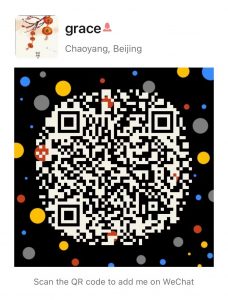
KEEP READING: Dining Deals to Gorge on This CNY
Images: Billy Jin, Vivienne Tseng-Rush, Pexels




